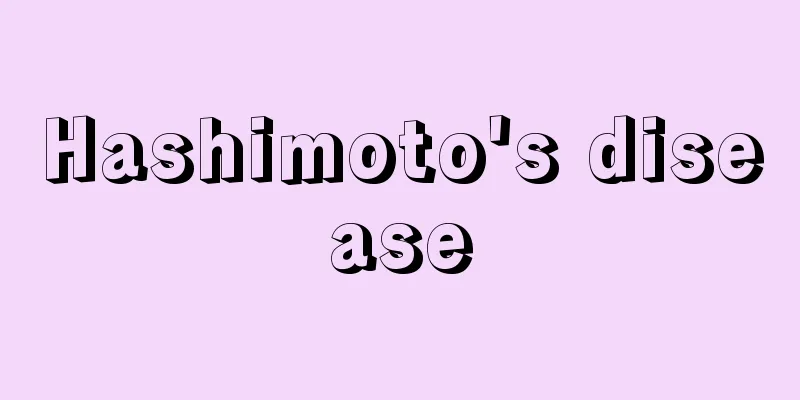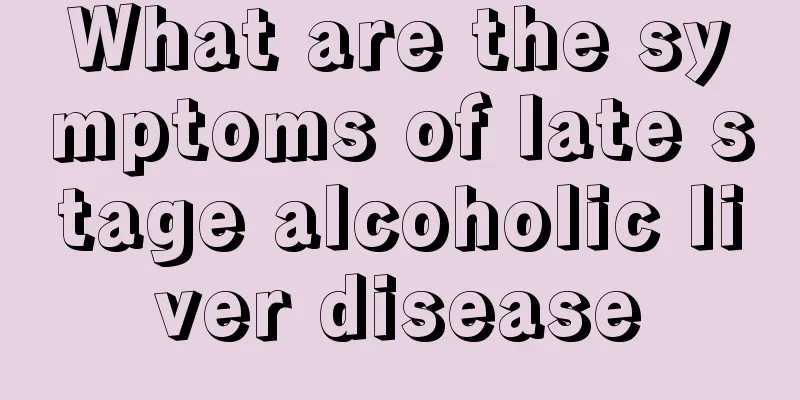Hashimoto's disease

|
When many people hear the term Hashimoto's disease for the first time, they don't know what it means. In fact, Hashimoto's disease is a thyroid disease with variable and complex symptoms. During the course of the disease, it is divided into several different stages: compensatory stage, hyperthyroidism stage, and hypothyroidism stage. The condition and symptoms of each stage are different. Patients must distinguish the stages during treatment to avoid confusion and delays in the disease. This article introduces detailed knowledge about this disease, let’s take a look. 1. Hashimoto's disease (compensated stage): This stage can be latent for an average of 40 years and a maximum of 80 years, and may manifest as a normal thyroid gland or an enlarged thyroid gland. 2. Hashimoto's disease (hyperthyroidism stage): Hyperthyroidism may occur on the basis of the compensatory stage due to external inducements (such as excessive stimulation, anger, fright, etc.). When TSH decreases and FT4 and FT3 increase, it is hyperthyroidism. When accompanied by increased TGAb and TPOAb, it is Hashimoto's disease (hyperthyroidism stage), which requires medication, surgery or iodine 131 treatment. 3. Hashimoto's disease (hypothyroidism stage): Most cases of Hashimoto's disease will eventually develop into natural hypothyroidism, and some will also develop hypothyroidism during drug treatment. Most patients who develop hypothyroidism require long-term maintenance drug treatment. Hashimoto's disease is a chronic thyroiditis caused by autoimmunity and is one of the autoimmune thyroid diseases. In recent years, the diagnosis rate of Hashimoto's disease in children has increased year by year, but it is easily overlooked and should be given necessary attention. Whether you have symptoms such as excessive sweating, weight loss, heat intolerance, irritability, or fatigue, drowsiness, memory loss, edema, and weight gain, you should be wary of Hashimoto's disease. When your thyroid is enlarged, you should also check your thyroid function and antibodies to determine whether you have been attacked by Hashimoto's disease. Early treatment of Hashimoto's disease can effectively prevent the development of hypothyroidism and avoid the trouble of long-term medication. Therefore, no matter what stage the patient is in, once the disease is discovered, it must be treated as soon as possible. The effect of traditional Chinese medicine in treating Hashimoto's disease has been confirmed. Everyone must pay attention to the health of the thyroid gland and eliminate health risks as soon as possible. |
>>: What does joint disease mean
Recommend
What are the key points to check for early detection of lung cancer? These tests are essential for preventing lung cancer
Nowadays, lung cancer is the most common cancer i...
Detailed description of the infectious period of mumps
Friends who have had mumps should all know that t...
Which is better, bone-setting water or safflower oil
Bone-setting water and safflower oil are two comp...
How to wash old oil stains on clothes
Clothes with old oil stains are very ugly, but af...
What are the early symptoms of bladder cancer
Bladder cancer is a malignant tumor that occurs o...
Brain edema can be treated in these ways
Edema may occur in many parts of the body, includ...
What is the difference between blood sugar and urine sugar
There is actually a difference between blood suga...
How to exercise the erector spinae muscles?
As a boy, you definitely want to have a lot of mu...
Nursing of patients with nasopharyngeal carcinoma suffering from massive bleeding after radiotherapy
Radiotherapy is generally the first choice of tre...
Postoperative care for endometrial cancer
Endometrial cancer is more common in postmenopaus...
Itch in the inner thighs of the genitals
The senses in every part of the body are very sen...
Three major salivary glands
The three major salivary glands located around th...
What to do about gingivitis? Methods for treating gingivitis
Gingivitis is a symptom that we often experience,...
Three types of treatment principles for paroxysmal atrial fibrillation
Paroxysmal atrial fibrillation does not cause muc...
Are there any symptoms of ovarian tumors that can cause pain in the right lower abdomen?
Ovarian tumors may cause pain in the right lower ...









